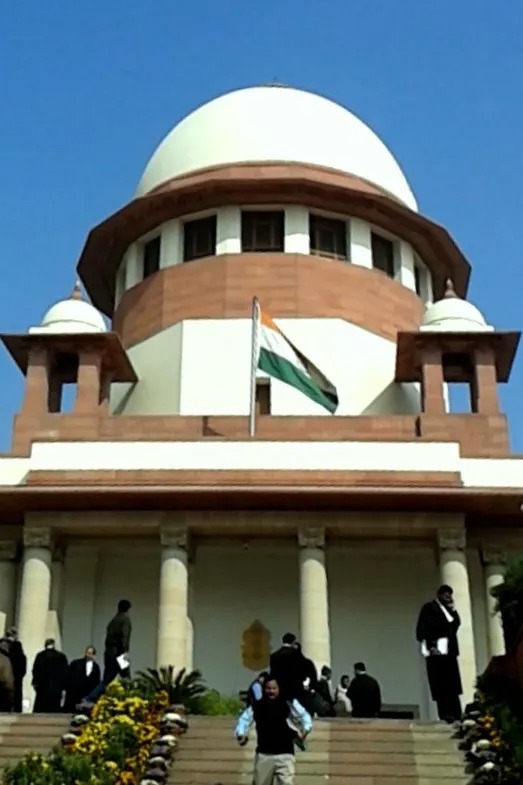Surya Kant, J.@mdashThis order shall dispose of RSAs Nos. 2356, 2357, 2358, 2359 of 1989; 1466, 1468 of 1990 as the substantial question of law raised in these appeals is common. For brevity, the facts are being extracted from RSA No. 2356 of 1989. This Regular Second Appeal assails the judgment and decree dated 12.05.1988 passed by Sub Judge, First Class, Hoshiarpur whereby the appellant-Trust has been injuncted from taking possession of the suit property without carrying out afresh acquisition process in accordance with law. The said judgment and decree has been affirmed by the Additional District Judge, Hoshiarpur vide judgment and decree dated 15.05.1989. The only substantial question of law that arises for consideration is whether acquisition of the respondent''s property comprising a double storey residential house is illegal being in violation of the mandatory procedure contained in the Punjab Town Improvement Act, 1922 (in short, ''the 1922 Act'')?
2. The brief facts giving rise to these appeals are as follows:--
3. The respondent-plaintiff purchased the suit property by way of registered Sale-Deed dated 30.08.1974 whereupon she constructed a double storey building in the year 1974. The factum of ownership along with construction was duly entered in the revenue record while sanctioning the mutation in the year 1974. The respondent-plaintiff averred that she was served with two notices dated 30.09.1985 and 04.11.1985 informing her that the award had been announced and possession of her house/property would be taken. She questioned those notices and sought a decree of permanent injunction on the ground that the suit property was never acquired by the Trust in accordance with the law hence she could not be forcibly dispossessed.
4. At this stage, it may be mentioned that the 1922 Act contemplates framing of Scheme by Improvement Trust and upon its approval by the State Government, the Act provides procedure to acquire the land for such Scheme. Section 36 of the Act provides that when a Scheme is framed, the Trust shall publish a notice stating the factum of scheme formulation, the boundaries of the locality comprised in the Scheme and the details of the land proposed to be acquired along with a general map of the locality. The Trust is also obligated to ensure publication of notice in the prescribed manner. Section 38 of the Act requires that during thirty days next following the first day on which notice under Section 36 is published, the Trust shall serve a notice "on every person whom the trust has reason to believe after due enquiry to be the owner of any immovable property which it has proposed to acquire in executing the scheme" as well as the occupier etc; Such a notice shall mention the proposal to acquire the property and would invite objections from the aggrieved person. Section 41 of the Act enables the State Government to sanction with or without modification the Scheme forwarded to it by the Trust. If the State Government approves it, the Scheme shall be notified under Section 42 of the Act. The 1922 Act further contemplates that provisions of the Land Acquisition Act, 1894 (since repealed) (in short, ''the 1894 Act'') as per the modified schedule shall be followed.
5. The Courts below have in this backdrop considered the solitary question as to whether the respondent-plaintiff was ever served with notice under Section 36 of the Act informing the proposal of acquisition of her property and to submit objections, if any?
6. The trial court on the basis of the pleadings of the parties framed the following issues:--
"1. Whether the notice under S. 9 of the land Acquisition Act dated 30.9.1985 is illegal and void? OPP
2. Whether the award dated 4.11.1985 is illegal and valid?
3. Whether the built up portion was exempted from scheme? OPP
4. Whether the suit is within time? OPD
5. Whether the plaintiff is estopped by his act and conduct to file the suit? OPD
6. Whether the land Acquisition Collector is a necessary party? OPD
7. Whether the plaintiff is entitled to the injunction prayed for? OPP
8. Whether civil court has no jurisdiction to try this case? OPD
9. Relief."
7. While answering Issue Nos. 1 & 2 that the learned trial court came to the conclusion that no mandatory notice was served upon the respondent-plaintiff nor she was given opportunity to submit objections against the proposal of acquisition of her property. Having answered those issues in her favour, the suit was decreed.
8. The appellant-Trust went in appeal but the same has been turned down by the learned Additional District Judge, Hoshiarpur holding as follows:--
"In the instant case, the mandatory provisions of section 38 of the Act were not complied with and thus the landowner/occupier could not file objections and was prejudiced. Thus in terms of the said Full Bench authority of our own Hon''ble High Court the Legislature had not intended the provisions of Sub-section (2) of Section 42 to cover non-compliance with the relevant provisions of the Act and shield the colourable exercise of the power by the concerned authorities from scrutiny of the court...." "...In the instant case the service of notice upon the plaintiff under section 38 has not been proved by the Improvement Trust and Surta Singh Patwari as DW1 has admitted that no re-housing scheme was prepared. So relying upon the Full Bench authority of our own Hon''ble High Court the scheme in question is liable to be quashed so far as it concerns the plaintiff-respondents property...."
9. I have heard learned counsel for the parties and gone through the record. Relying upon the decisions in (i)
10. There is no gainsaying that in the light of the view taken by the Apex Court in the cited decisions, the jurisdiction of the Civil Court to look into the legality of procedure of acquisition of land under the 1894 Act is barred by necessary implication.
11. The question whether jurisdiction of the Civil Court in the instant case is also barred by necessary implication must be answered with reference to the legislative scheme of the 1922 Act. Section 97 and 98 of the Act have a material bearing on the issue. While Section 97 says that no suit shall be maintainable against the Trust, or any Trustee in respect of any action taken by them lawfully and in good faith and with due care and attention, Section 98 provides that no suit shall be instituted against the Trust or the Trustee until the expiration of two months next after notice in writing has been served on them.
12. It stands crystallized from the phraseology of Section 98 that the Civil Court cannot entertain a suit unless the pre-conditions for its entertainment are complied with. Section 98(1) though couched in negative language but it permits institution of a civil suit against the Trust subject to the compliance of conditions contemplated therein. The jurisdiction of the Civil Court thus cannot be said to have been barred by necessary implication. On me other hand, there is an explicit provision whereunder Civil Suit is maintainable.
13. In fact the legislative internment behind Section 98 of the 1922 Act appears to have dissuaded the appellants from pressing the issue of lack of jurisdiction before the Courts below even though such an objection was taken by them in die written statement and Issue No. 8 as to whether Civil Court has no jurisdiction to try the case, was also framed?
14. That apart, there is a concurrent finding of fact by the Courts below that the mandatory procedure contemplated under Section 38 and 42 was not complied with while expropriating the immovable property of the respondent-plaintiff.
15. Besides this, it cannot be overlooked that the respondent-plaintiff had constructed a residential house in the year 1974 i.e. much before initiation of acquisition proceedings. No compensation was paid or received by her nor any notice was served on her under Section 38 of the Act. The acquisition was made for development of a residential scheme and the property in dispute already stood utilized for residential purpose only. The appellant-Trust cannot be permitted to uproot the respondent at this juncture on the pretext of developing a residential scheme. Above all, the courts below, while injuncting the appellant, have granted liberty to carry out fresh acquisition process, if need be.
16. For the reasons stated above, no interference in the impugned judgment and decree passed by the courts below is called for. Dismissed.

